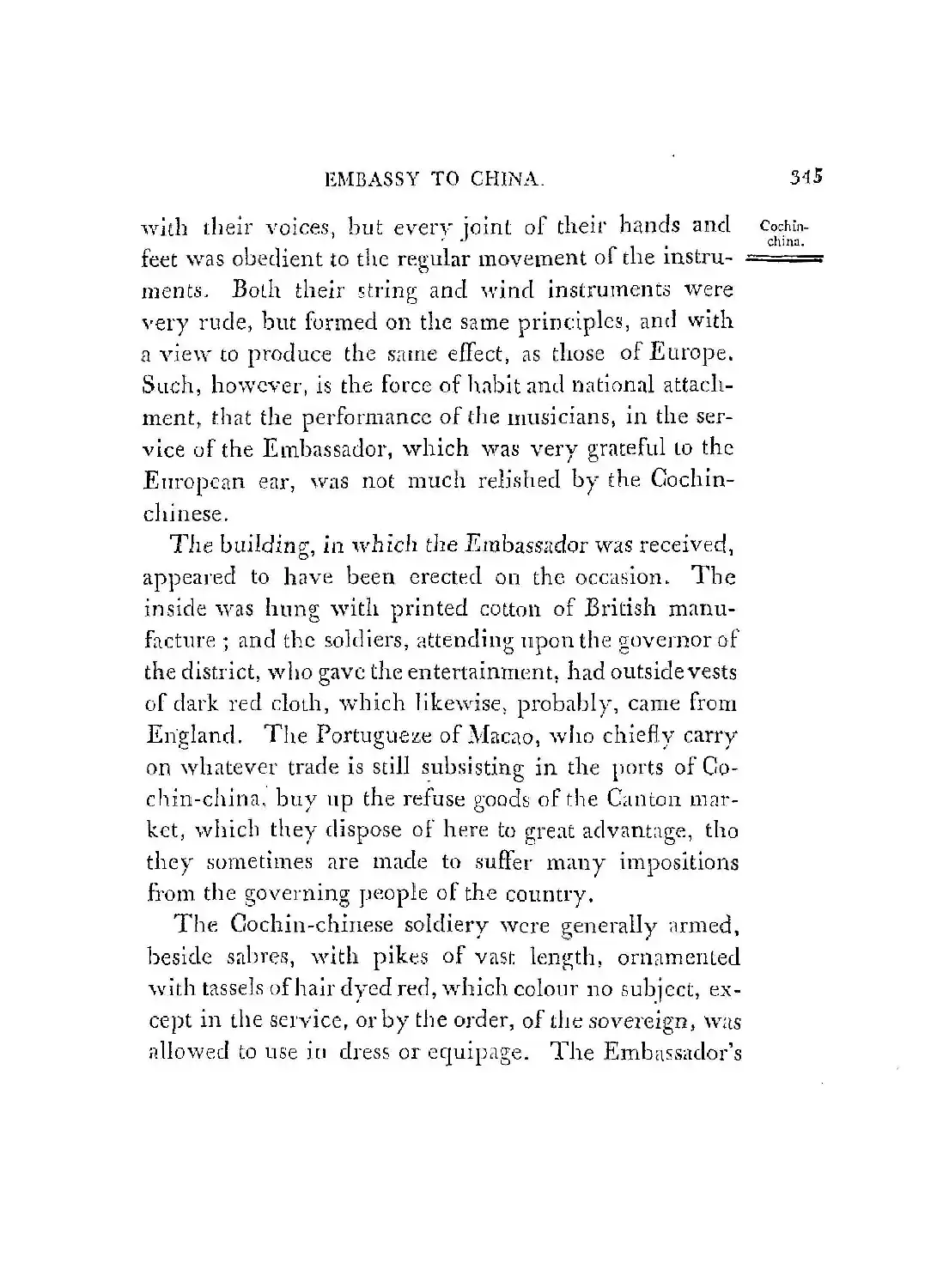An Authentic Account of an Embassy from the King of Great Britain. 1
- Info
- Pages
- Transcript
- Related
They were liberal in their turn; and in instances, too, where few others
are disposed to generosity. Wives and daughters were said to be
transferred on easy terms, and with little scruple. All affairs of
gallantry seemed, indeed, to be treated by them very lightly. These
observations must, however, be considered as applicable, principally, to
the more numerous, but lower classes of the people; and among them, to
those who were so situated as to have most intercourse with strangers;
while the upper orders were more comprehensive in their injustice, and
more exclusive in their enjoyments: exercising their power over the
weaker sex, in confining their many wives, and over the people in a
variety of oppressions, which neither the inferior was emboldened to
resist, by depending upon his right; nor the superior deterred from
continuing, by a consciousness of doing wrong; as if no principle of
religion, or maxim of morality, had been inculcated among them in
support of justice, or for putting any limit to authority. Subordination
was strongly marked by prostrations and other exterior acts of abject
humiliation to those in power.
Tho a great inequality of conditions tends, in some instances, to the
cultivation of such of the fine arts, as happen to be esteemed, because
it provides means for their encouragement, there did not appear among
the Cochin-chinese the least traces of painting or of sculpture; but
they had made some proficiency in music. The Embassador was induced to
accept of an entertainment, given on shore on the fourth of June, being
his Britannic Majesty’s birthday. On this occasion a grand dinner was
provided. After which a play was performed, in a style superior to any
that had been hitherto exhibited. The piece appeared to be a kind of
historical opera, in which were the recitative, the air, and the chorus,
as regular as upon the Italian stage. Some of the female performers,
were by no means despicable singers. They all observed time accurately,
not only with their voices, but every joint of their hands and feet was
obedient to the regular movement of the instruments. Both their string
and wind instruments were very rude, but formed on the same principles,
and with a view to produce the same effect, as those of Europe. Such,
however, is the force of habit and national attachment, that the
performance of the musicians, in the service of the Embassador, which
was very grateful to the European ear, was not much relished by the
Cochin-chinese.
The building, in which the Embassador was received, appeared to have
been erected on the occasion. The inside was hung with printed cotton of
British manufacture; and the soldiers, attending upon the governor of
the district, who gave the entertainment, had outside vests of dark red
cloth, which likewise, probably, came from England. The Portugueze of
Macao, who chiefly carry on whatever trade is still subsisting in the
ports of Cochin-china, buy up the refuse goods of the Canton market,
which they dispose of here to great advantage, tho they sometimes are
made to suffer many impositions from the governing people of the
country.


